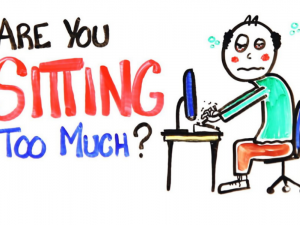It's Time to Relax:
15 Quick Tips to Help You Shift Your Gears to Relax Mode Quickly
America's number one health problem ~ responsible for 75 percent to 90 percent of doctor visits, according to the American Institute for Stress ~ is stress. It's no wonder, given that we all face stress on a daily basis in our:
- Relationships
- Finances
- Health
- Personal safety
- Home
- Career
When stress becomes unbearable, it can lead to a host of serious illnesses, including heart disease, cancer, depression, autoimmune diseases and reproductive problems.
So whether you are feeling stressed at home, work or in the car, taking time to relax is an essential part of staying healthy and happy. Here are 20 quick tips for helping you do just that - and, unlike drinking, smoking or other potentially unhealthy stress relievers, these tips will only do your body good.
At Home
1. Take a Warm Bath or Hot Shower
This is especially relaxing if you add aromatherapy bath salts to your bath water, as has been used for thousands of years to calm emotions, relieve stress and more.
2. Sit Back and Listen to Soothing Music
Listening to soft, soothing music is one of the fastest ways to alter your mood and put your mind in a more relaxed state. Meditation and music can calm your mind, soothe your emotions and create a state of deep relaxation in your body. Using meditation regularly can help you to live in a more relaxed way so you notice that you begin to feel stressed, you'll be able to relax more easily than before.
3. Try Yoga or Other Gentle Exercise
The repetitious movements and slow, methodic nature of yoga and other gentle exercises (like Tai Chi) are excellent for relieving stresses that have accumulated during the day.
4. Stretch Your Stress Away
Simple stretching exercises can do wonders for stress relief. If you don't stretch, your body will naturally hold on to tension and you will have reduced flexibility. However, stretching for just a few minutes a day will increase your flexibility ~ and with flexibility comes a significant reduction in the tension in your body.
5. Get a Massage
According to the American Massage Therapy Association (AMTA), people are using massage more than ever to help relieve stress and pain, lower blood pressure, increase circulation and flexibility and even boost the immune system.
Many massage therapists will come to treat you in your own home. If you're interested in taking advantage of some of the benefits massage has to offer, but don't know where to find a massage therapist near you, the American Massage Therapy Association has a national locator service that includes all 50 states as well as Canada: Find a Massage Therapist
At the Office
6. Self-Massage
When you can't commit to having a standard massage, a self-massage can help you unwind easily while sitting at your desk. This can be done simply in your office to your:
- Shoulders: Use your opposite hand for the opposite shoulder. Massage the sides of your neck, down your shoulder and arm and on either side of your spine using small circular movements of your fingertips.
- Legs: Knead your thighs and calves. Next, pummel your thighs gently with soft fists to help relieve stiffness that can occur from sitting too long.
- Hands: Using small circular movements of your fingertips once again, massage between the tendons on your hands and around each joint. Then, start at the base of each finger and stretch it gently, pulling your grip up from the base of the finger to the tip as you stretch.
7. Take Care of the Quick Stuff
Our days are cluttered with "assignments" and "to-do's." Time management experts recommend taking care of as much of the small stuff as possible right away. For instance, stop on any quick errands you can on your way to work, then write back any quick e-mails, make any quick phone calls and get any other fast tasks out of the way immediately.
That way, you can completely forget about these things, rather than holding them somewhere in the back of your mind to accumulate and do later. The end result? You feel less cluttered, less overwhelmed and less stressed.
8. Power Nap
Sneaking off for a 20-minute "power nap" can leave you feeling refreshed and ready to take on new challenges. Studies have found that 20 minutes is just the right amount of time to de-stress -- sleep too much longer and you could end up feeling groggy. So grab and alarm clock and head off for some quick zzz's.
9. Laugh More
Having a good laugh can make stress melt away in an instant. Plus, it decreases blood pressure and heart rate, increases oxygen in the blood and creates an enzyme that helps protect your stomach from the effects of stress. Sadly, adults don't laugh nearly as often as they should.
"Children laugh approximately 80 to 100 times per day. By the time we reach adulthood, we laugh only 5-6 times per day. You only need to watch children to appreciate the relationship between humor and enjoying life. Children will laugh at anything! If you ask them, "what's so funny," they may say something like, "he looked at me!" says Barbara Bartlein, R.N., M.S.W., a motivational speaker and consultant.
So make an effort to have a few laughs with your coworkers as often as you can throughout your day.
10. Put Some Variety in Your Day
Sitting on the phone making sales calls for six hours straight, or filling out paperwork for five, is stressful, simply because of the repetitiveness of the activity. Breaking up your workday, by taking a walk outside, a "power nap," stopping to grab a bite to eat or even switching to a different work-related task, will help you to feel more invigorated and less tense.
On the Road
11. Drive the Unbeaten Paths
According to astudy by Ohio State, study participants were frustrated when driving down industrial routes, but calm when driving on scenic routes. Whenever possible, trade in busy interstates and unsightly travel routes for the "road less traveled."
12. Turn Off the Radio
And turn on a soothing jazz CD - something relaxing enough to help you feel calm, but not so soft as to make you fall asleep. Believe us, you won't miss the shock jocks, screaming morning and afternoon DJs, local news about murders and overplayed commercial segments one bit.
13. Breathe Deeply
Deep breathing is one of the easiest and most natural - yet most often overlooked - stress relief methods out there. Take in a deep breath through your nose, then exhale through your mouth, counting for about four seconds on each phase (in and out). Repeat this about 20 or 30 times. When you start to breathe deeply on a regular basis, you'll notice how little you were actually breathing before, and how taking deep breathes, which increases oxygen levels in your body, is naturally calming.
14. Add Natural Scents to Your Vehicle
Said Sue Nicholson, head of campaigns for the British RAC Foundation, a motoring organization, "It's astounding how much the smell in a car can affect a driver's mood and actions." Certain scents, like fast food wrappers and pastry, can actually irritate a driver, but others help a driver feel calm, yet alert. While driving, the most calming scents for reducing stress while still staying alert include:
- Peppermint and cinnamon: They improve concentration levels and make drivers less irritable.
- Lemon and coffee: These, too, help drivers achieve high concentration levels and clear thinking.
- Sea ozone: A breath of salty sea air may make drivers breathe deeply, which helps relieve stress, relax the muscles and calm the mind.
15. Be a Courteous Driver
It's easy to get caught up in trying to "one-up" an aggressive driver, but doing so is a surefire way to add unnecessary stress to your life. If you notice an aggressive driver who is weaving in and out of traffic, tailgating, etc., don't challenge them and avoid them if necessary. And, of course, don't be an aggressive driver yourself.
---------------------------------------
Sources
Top 10 Tips To Prevent Road Raae - Edmunds.com
JAMA: Stress Affects Expression of Inflammatory Genes in Immune Cells
JAMA: Some Medical Aspects of Vacation Time






